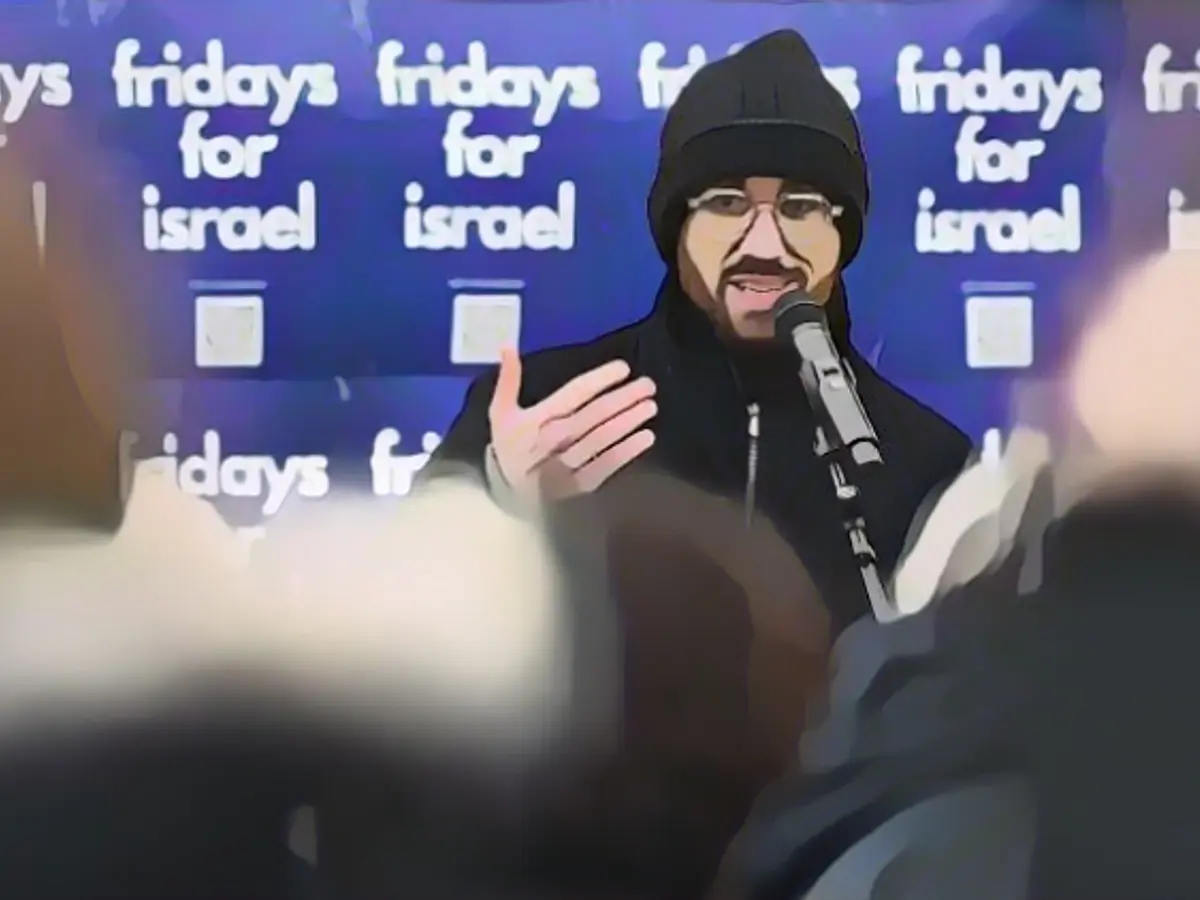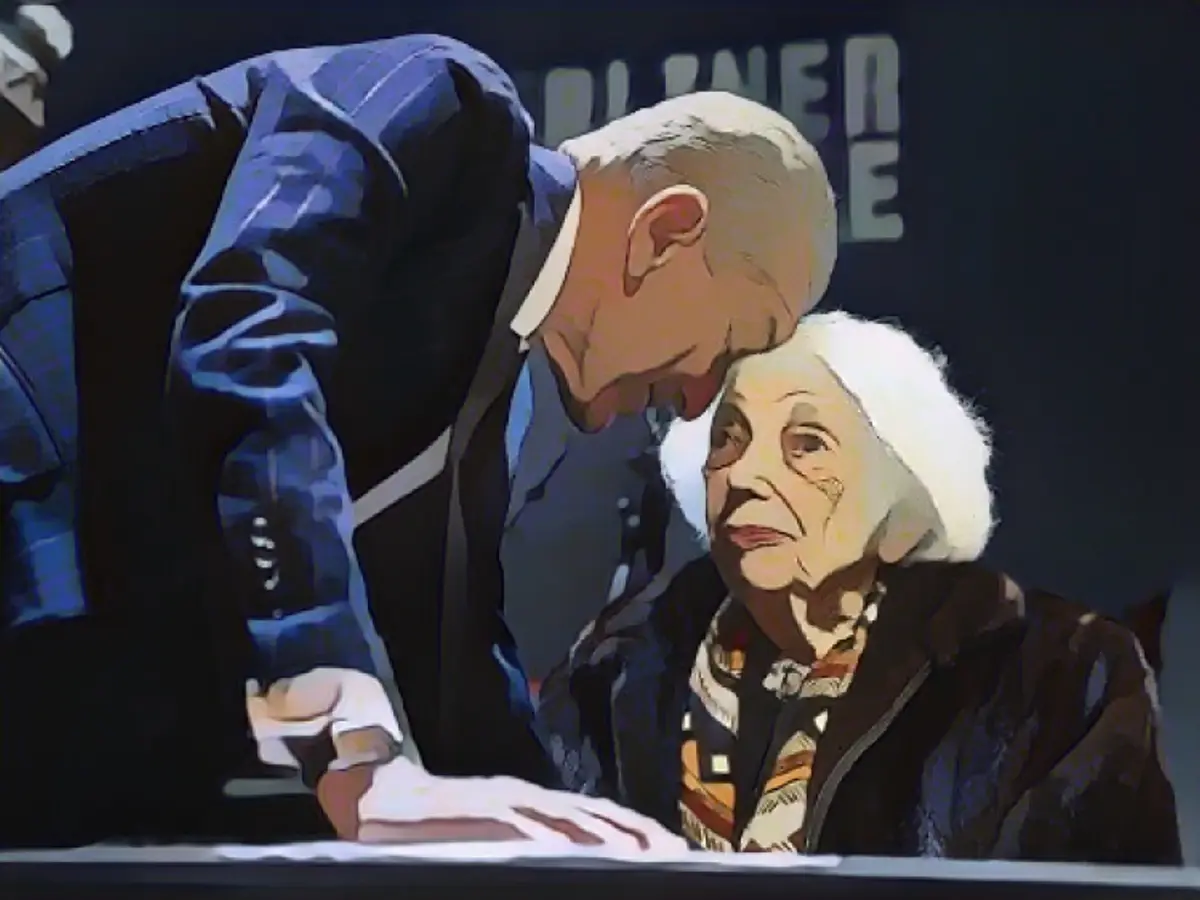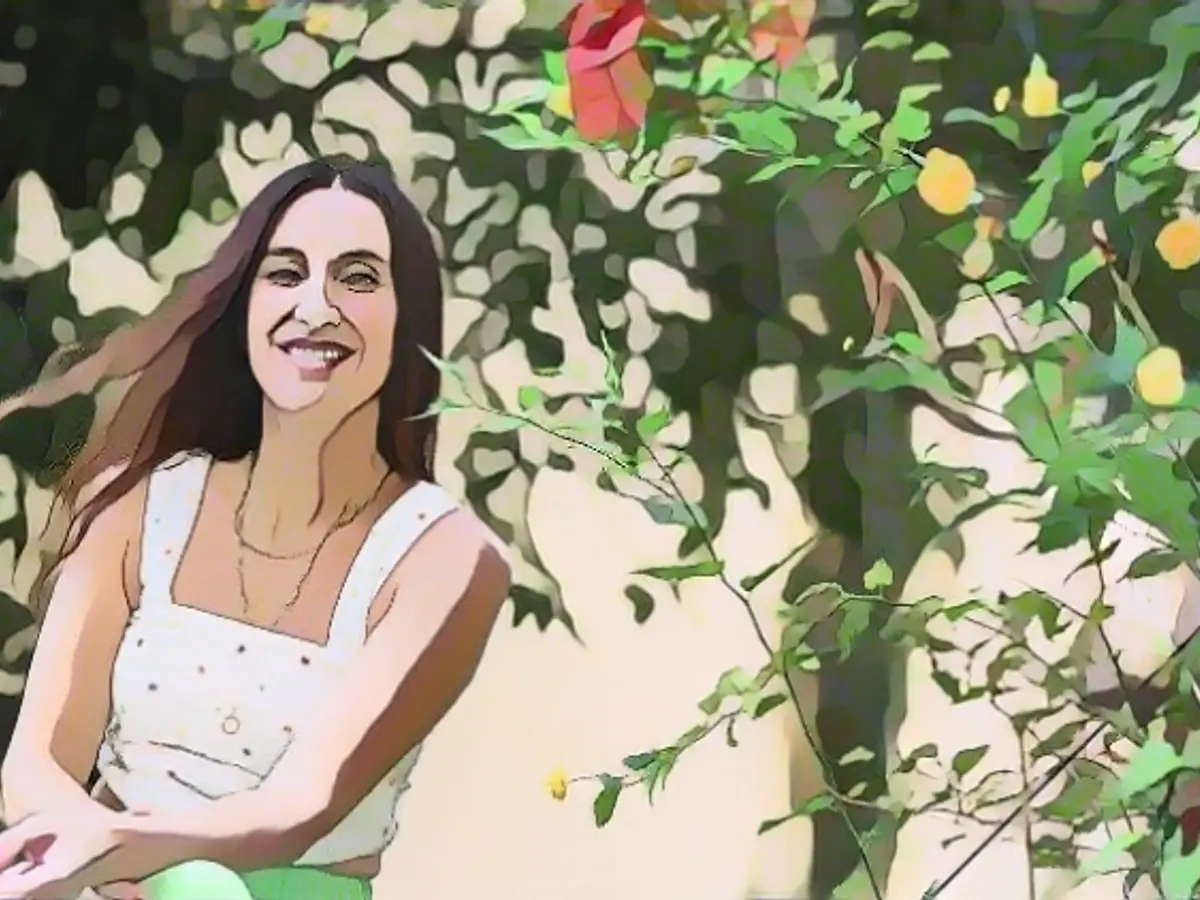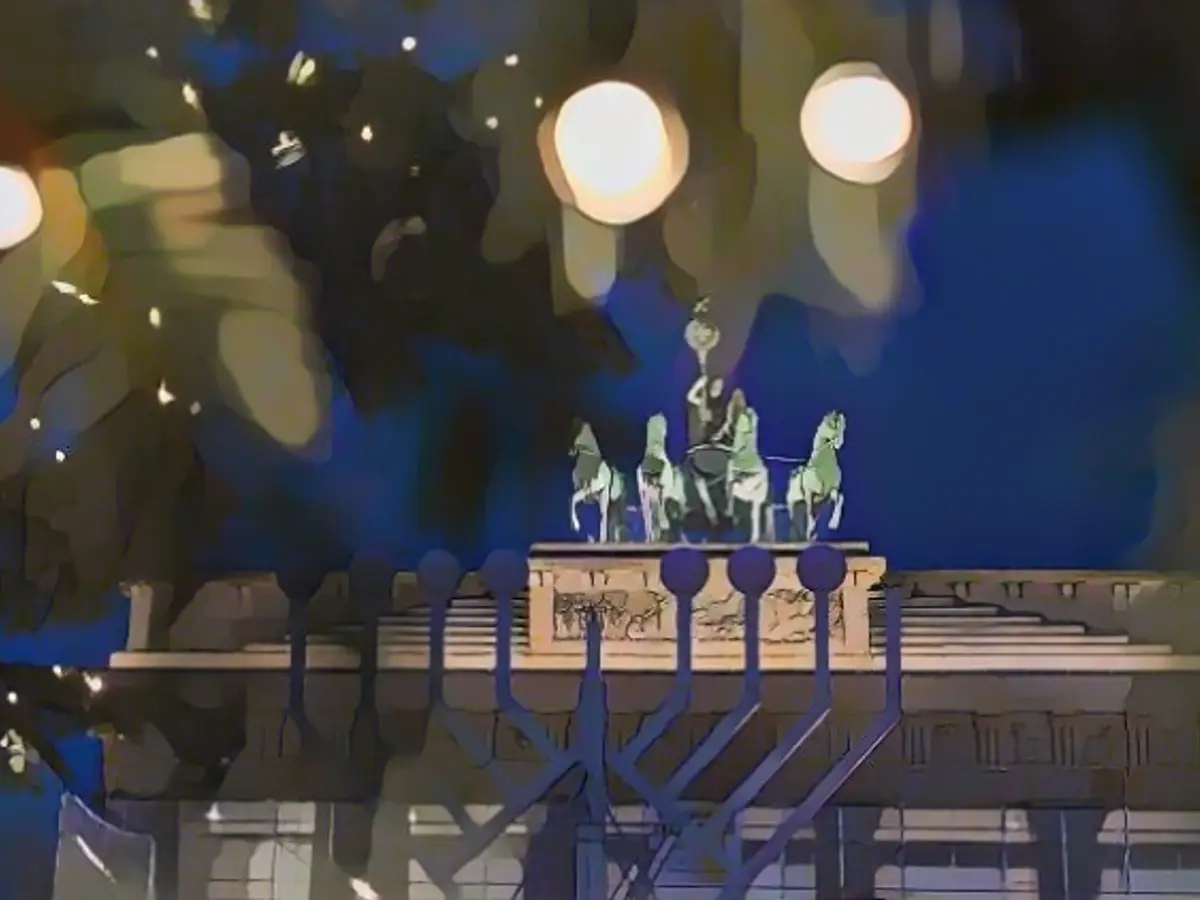The loudest silence of all time
As a German Jew, how do you deal with the current wave of anti-Semitism? Because there is a strange, disturbing mood of non-reaction, non-empathy and aggression. Hanukkah is being celebrated these days. ntv.de took a look and listened.
Hanukkah - in better times, people celebrated "Christmas" until the doctor came, because these two festivals are close to each other and, above all, because the people who celebrate them are totally close. This year, however, everything is different. This year, a friend, a Jewish gallery owner, is being advised not to hang his Israeli flag in the shop window if he still values his window glass.
This year, Jewish friend and journalist Andreas Tölke, who also runs the restaurant "Kreuzberger Himmel" and tirelessly rescues people in Ukraine, tells his Syrian employees to please roll up the Israeli flag, "I know you mean well, but I'm not in the mood for stress in the store".
This year, friend M. is wearing her Star of David under her sweater for the first time, even though she has previously been advised not to wear the symbol visibly on the train or on the street. Until now, she said she didn't see the point. Now, unfortunately, she sees it differently. Has to see it differently.
This year, friend L. says: "I thought about taking the mezuzah off my parents' front door. Because it might be too dangerous. But the most dangerous thing about it is that they'll have a heart attack if I do it, because they can't believe it's necessary. My parents are over 90." The family is not celebrating much this year: "What are we supposed to tell each other? That everything will be okay? It will, we'll tell the children that too, but certainly not this year."
Anti-Semitism socially acceptable?
Another friend finds the silence of "the Germans" painful, especially as Jews and Israel are now often equated. "Yes, the pictures from Gaza are cruel," says S. on the phone, "yet every week 100,000 people took to the streets in Israel and demonstrated against Netanyahu. That seems to have been forgotten." She emphasizes: "Israel still has the right to defend itself, and indeed all Jews in this world who feel uncomfortable wherever they happen to live." She believes there will be a Jewish exodus to Israel after the war, "because anti-Semitism has become socially acceptable."
And she formulates what many Jews (in Germany) are probably wishing for right now:
- I wish, as a Jew, for all Jews in the world, to finally be able to really live in freedom.
- As a German Jew, I wish I could show my star on the chain. Now I can't because I have to be afraid of being threatened.
- I wish I could shop at a Turkish or Arab greengrocer, florist or fruit seller. I don't do that because I don't know whether he is an Erdogan or Hamas supporter. I don't feel the need to support their families with my purchases.
- I no longer live freely in Germany.
- I am grateful that my parents no longer have to experience this situation.
- I wish the war would stop.
- I hope that Israelis and Palestinians can live side by side in freedom and without fear.
- I hope that we Jews can finally stop having it in our DNA that we have to survive. We are not brought up to do this, it is in our DNA. I wish it didn't always have to be like this!
- As a migrant and a Jew, I wish that people would come to Germany who have respect and esteem for this fundamentally great country. But I see that there are a lot of people who live here and benefit from this country and don't respect these values. On the contrary, they even despise them.
- As a German, I hope that this will change.
It used to be good?
Whether prominent or private - the voices and moods are similar, because prominent Jews also talk about the feeling of being alone, their pain at the non-existent or cool reactions in society - if there are any reactions at all. Margot Friedländer, 102 years old, born in Berlin, returned to her homeland more than ten years ago with the thought that all was well.
Since October 7, 2023 at the latest, it no longer is: "I'm horrified by what has happened now," she says at her appearances, which she continues to attend unperturbed. And finds apt words at a concert in the Berliner Ensemble: "There is no Christian, Muslim or Jewish blood. We are all human beings. We have to be mindful. We have to be human. Be human." The audience stood up and clapped for several minutes.

The evening was organized by pianist Igor Levit: he wondered where empathy and solidarity against anti-Semitism had gone in German society. Yes, some people had stopped by and called him, but funnily enough it was often those he had least expected. Those he had more or less expected were surprisingly quiet.
He didn't want to generalize, Levit told RBB, but he missed major campaigns such as those on the Russian war of aggression or in support of solidarity with Iranian women. He senses "an explosion of anti-Semitism" and laments a widespread silence in the cultural scene. "I could laugh just thinking about how bizarre this silence is for the vast majority of people." He asks: "Hatred of Jews is breaking out on German streets. Where are you?", the answer is: "I understand you, but Israel is so complicated." Levit emphasizes that he is "not Israel. I am not an Israeli. I'm a Jew in Germany who asks you where you are. And then nothing comes." He could no longer pretend that none of this had happened.
This bizarre silence

Michel Friedman also wonders in an interview how much empathy for others can exist in Germany: "Let's not kid ourselves: This loud silence of society as a whole is very noticeable. (...) And there was empathy for everyone - and rightly so." People took to the streets and hung up flags. "But when it comes to Jews, it was (and still is) relatively quiet in this country - and that's worrying."
It's about democracy - and anyone who doesn't understand that people are now not just campaigning for Jews, but for human dignity, which is inviolable according to the German constitution, will be surprised at how quickly authoritarian and violent groups will look for their next victims.
Book author and podcaster Lea Streisand comments: "I've hardly dared to leave the house since October 7. Not because I was afraid for myself, I simply had no energy for 'yes, but' discussions. All I did was cry." Streisand, a columnist for RadioEins, has experienced hostility at readings, open hatred of Jews and booing in recent weeks. At the demonstration at the Brandenburg Gate in Berlin a few weeks ago , she was therefore "so grateful, I would have loved to shake the hand of every single one of the more than 10,000 people taking part."

And when more solidarity does come from followers, it is as she describes it on Instagram: "Terrible, the Holocaust and what was done to your family, Lea, #neverforget and all that, but please: Don't talk about Israel." Streisand believed that anti-Semitism in Germany was history, "the rising right was on my radar, but I thought they had other goals, racist and anti-climate ones".
We are very few
In an interview with the NZZ, author and journalist Mirna Funk tries to establish a certain relationship for understanding: "Everyone knows someone who has been murdered, injured or kidnapped, or is connected to them through relatives and mutual friends. When I talk to my Israeli friends and relatives, everything revolves around the hostages." According to Funk, there are only 15 million Jews in the world. "There are very few of us. We are all related to each other in the second or third degree." The hostages, for example, are therefore regarded as their own family members.
It remains to be said: There is no Christian, Muslim or Jewish blood. Hanukkah sameach.
Read also:
- Snow chaos further restricts Bavaria
- Unanimous decision: faster wolf culls possible
- The year of climate records: extreme is the new normal
- Snow and ice paralyze southern Germany
In light of the increasing anti-Semitism, a Jewish friend advises not to display the Israeli flag in public due to potential backlash, highlighting the current climate of fear. This year, an international event such as Christmas might not be celebrated in its usual manner as a display of unity, given the heightened tensions.
Despite the unsettling climate in Germany, many Jews continue to express their hope for a world where they can live freely and without fear, both in their own country and in Israel. They wish for an end to the age-old survival instinct that has been a part of the Jewish DNA, yearning for a time when they can genuinely feel at home, without the constant threat of prejudice or violence.
Source: www.ntv.de






